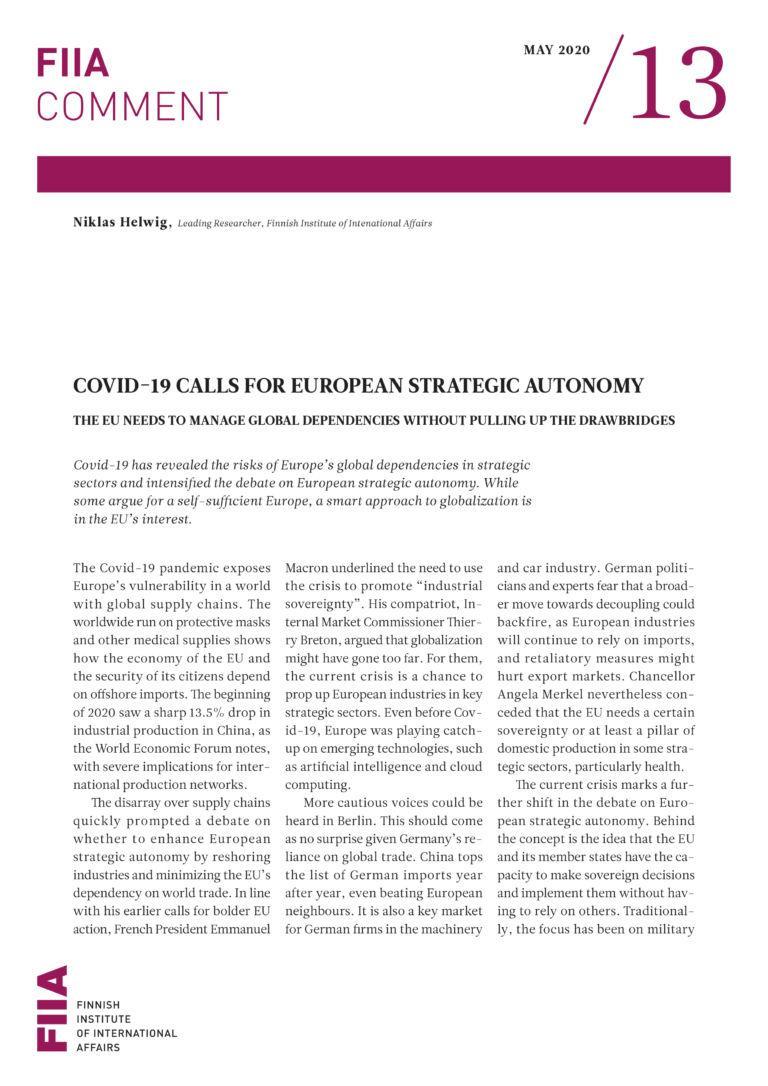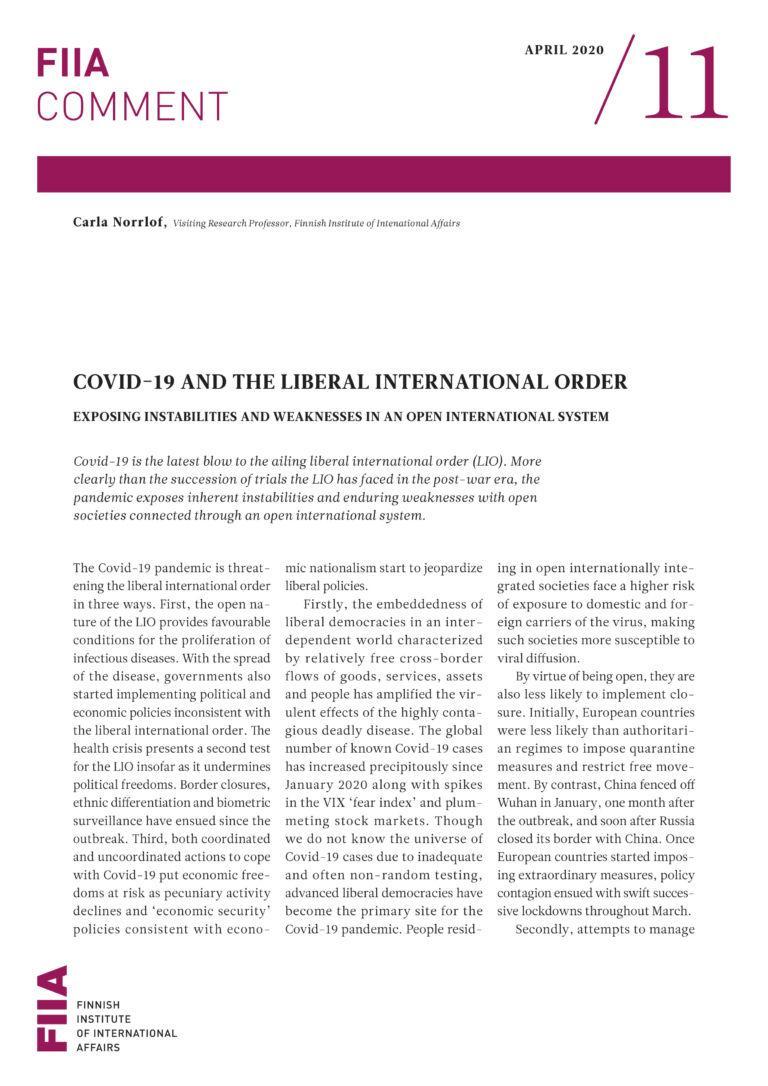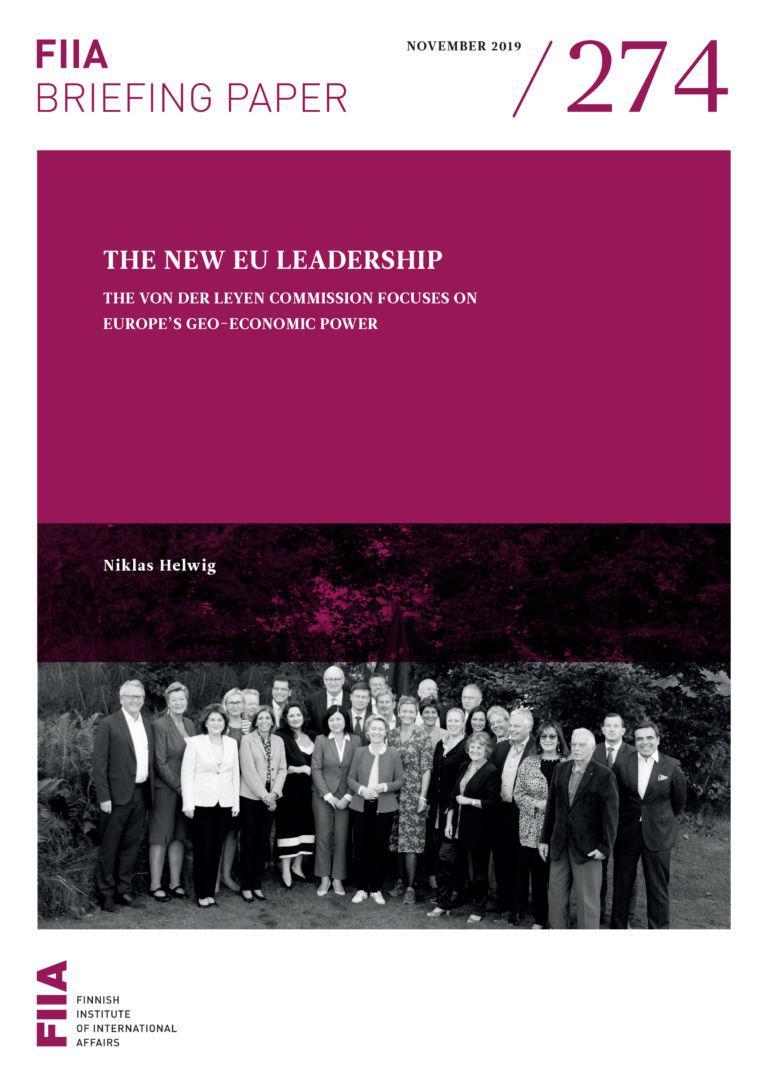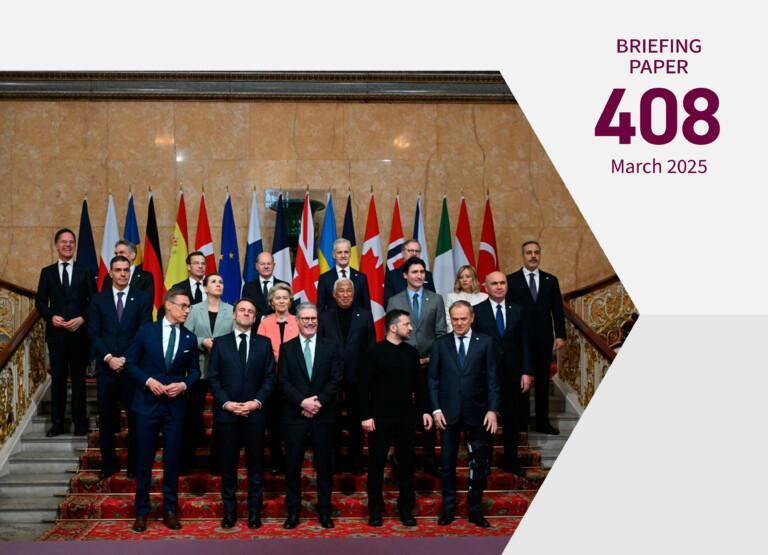
Covid-19 has revealed the risks of Europe’s global dependencies in strategic sectors and intensified the debate on European strategic autonomy. While some argue for a self-sufficient Europe, a smart approach to globalization is in the EU’s interest.
The Covid-19 pandemic exposes Europe’s vulnerability in a world with global supply chains. The worldwide run on protective masks and other medical supplies shows how the economy of the EU and the security of its citizens depend on offshore imports. The beginning of 2020 saw a sharp 13.5% drop in industrial production in China, as the World Economic Forum notes, with severe implications for international production networks.
The disarray over supply chains quickly prompted a debate on whether to enhance European strategic autonomy by reshoring industries and minimizing the EU’s dependency on world trade. In line with his earlier calls for bolder EU action, French President Emmanuel Macron underlined the need to use the crisis to promote “industrial sovereignty”. His compatriot, Internal Market Commissioner Thierry Breton, argued that globalization might have gone too far. For them, the current crisis is a chance to prop up European industries in key strategic sectors. Even before Covid-19, Europe was playing catch-up on emerging technologies, such as artificial intelligence and cloud computing.
More cautious voices could be heard in Berlin. This should come as no surprise given Germany’s reliance on global trade. China tops the list of German imports year after year, even beating European neighbours. It is also a key market for German firms in the machinery and car industry. German politicians and experts fear that a broader move towards decoupling could backfire, as European industries will continue to rely on imports, and retaliatory measures might hurt export markets. Chancellor Angela Merkel nevertheless conceded that the EU needs a certain sovereignty or at least a pillar of domestic production in some strategic sectors, particularly health.
The current crisis marks a further shift in the debate on European strategic autonomy. Behind the concept is the idea that the EU and its member states have the capacity to make sovereign decisions and implement them without having to rely on others. Traditionally, the focus has been on military shortcomings. The election of Donald Trump as US President fuelled the debate among European policy-makers as to whether the continent can afford to depend on others for its security. In recent years, initial steps have been taken to hedge risks and invest more in European military capabilities and industries.
However, Covid-19 demonstrates that European strategic autonomy means more than just the ability to defend its territory or stabilize Europe’s neighbourhood through civilian or military missions. A wider lens is needed to capture the full picture of Europe’s vulnerability and shortcomings in a more competitive international environment. In other words, global economic dependencies also involve risks to the security and wellbeing of citizens.
Despite the accurate risk assessment, greater European strategic autonomy should not be misunderstood as decoupling from long-standing allies or calling a halt to globalization. In terms of military matters, it is not feasible for the EU to leave the US security umbrella. When it comes to the economy, Europe cannot afford to significantly reduce trade with China, and it might be too late in the game to develop the necessary expertise for some emerging technologies. Instead, European strategic autonomy is about the EU’s ability to weigh the risks and benefits of its global dependencies and to seek an appropriate level of cooperation and interdependence with others.
This also applies in the context of Covid-19. It is a widely held view among experts that a complete reshoring of strategic industries is not a realistic approach to prepare for future health crises. Instead, they suggest diversifying suppliers and developing strategic reserves. While not without flaws, the Finnish medical stockpiles were able to somewhat soften the blow of dried-up global supplies at the start of the crisis. Diversification and resilience – not decoupling and independence – are the key to greater strategic autonomy in today’s world.
However, before each EU member state starts to invest in its own industries and strategic reserves, a European approach would appear to be the smarter and economically more feasible way forward. Last year the EU launched “rescEU”, a mechanism for the development of strategic reserves to manage emerging risks. The stated cases include not only medical emergencies, but also biological or nuclear incidents. It is now active and the first deliveries of protective masks have left the joint medical stockpile. The nascent Franco-German initiative for a European cloud-computing network has attained additional relevance, as it might allow the standardized handling of sensitive health data to contain future pandemics.
In a more drastic move, the European Commission could gain additional powers to oversee medical supply chains and intervene in cases of overdependence on offshore suppliers. Earlier this year, it published its industrial strategy, which signalled a new political will to bolster European industries. However, the current crisis serves as a lesson insomuch as the diversification of strategic supply chains, for example regarding raw materials or battery cells, should be a key objective of the Commission’s industrial policy as well.
In a more pessimistic scenario, the economic fallout from Covid-19 might increase the EU’s vulnerability, as European companies become attractive for foreign takeovers and member states feel the urge to lower defence expenditures. Yet the crisis also presents an opportunity for the EU to pursue smart globalization. This includes strengthening European industry where needed, diversifying supply where possible, and constantly staying engaged with partners.









